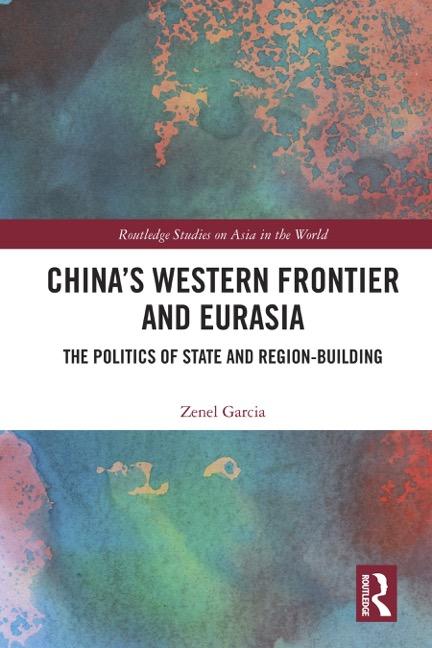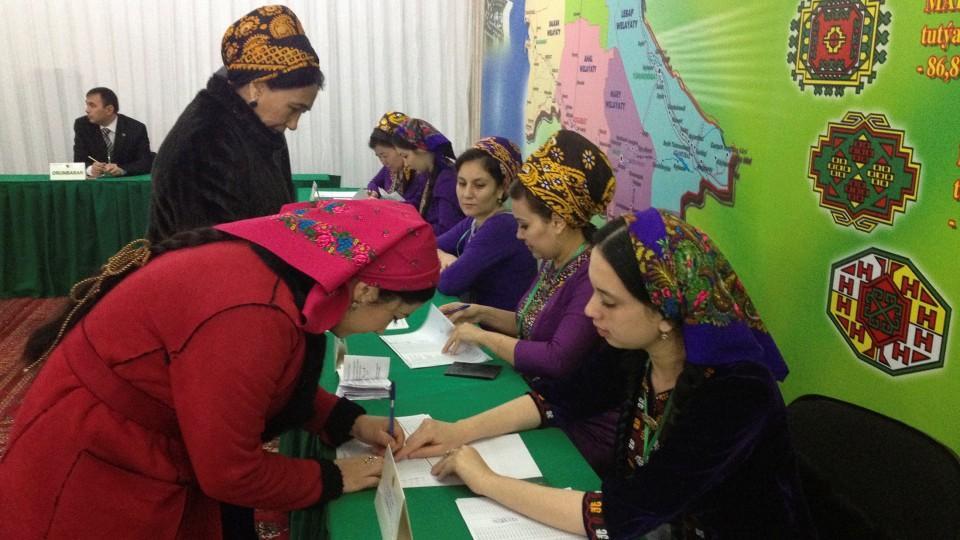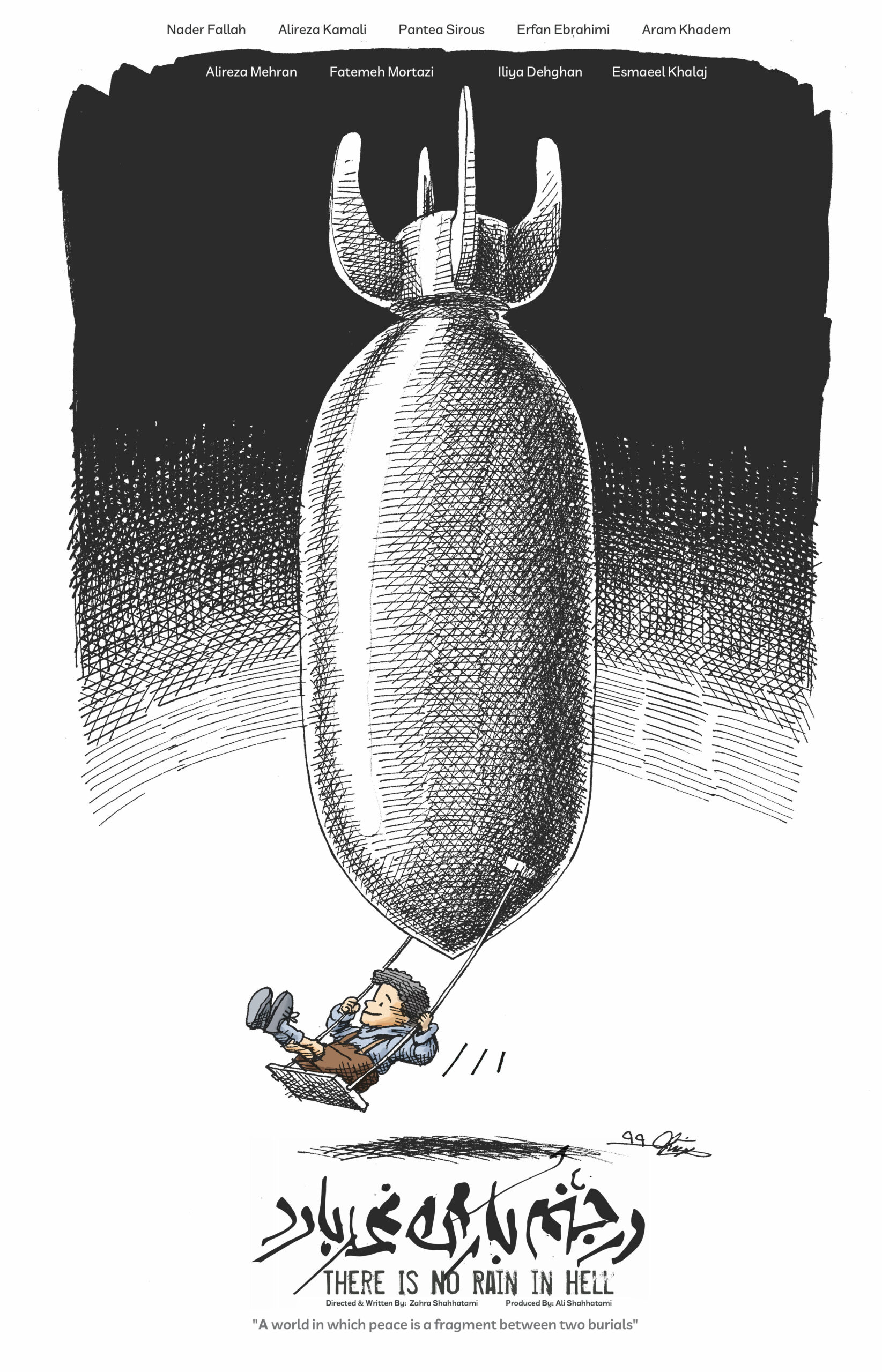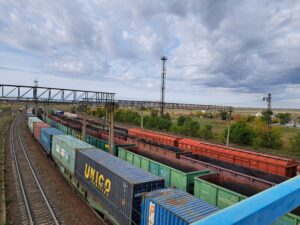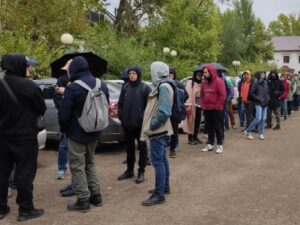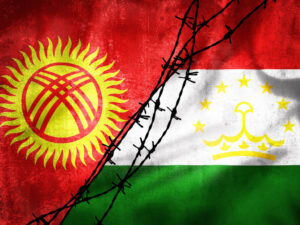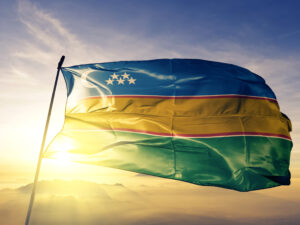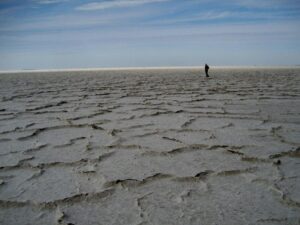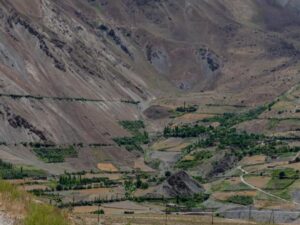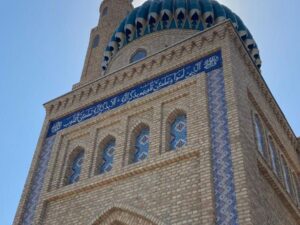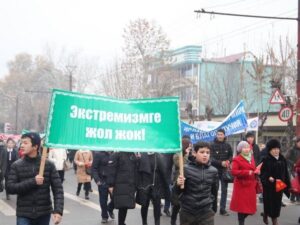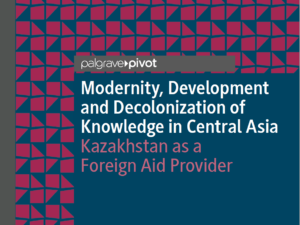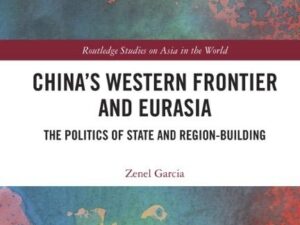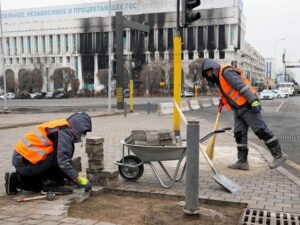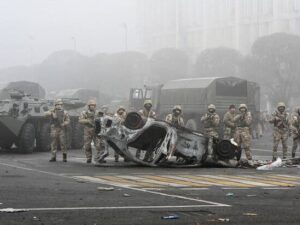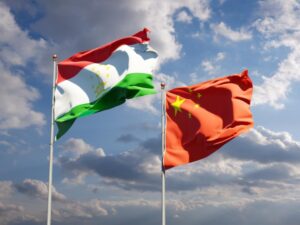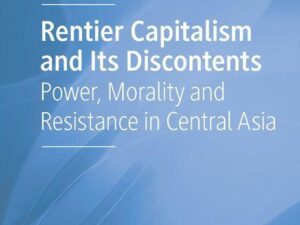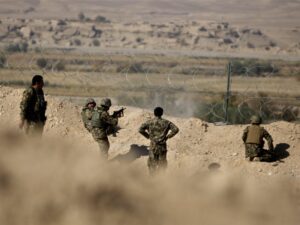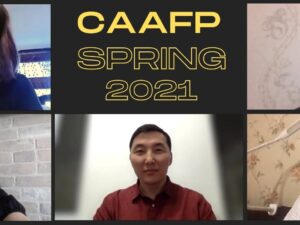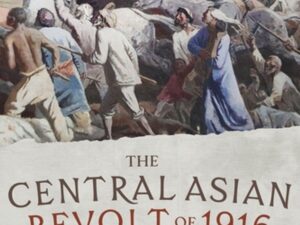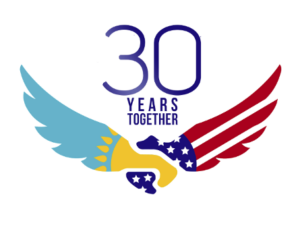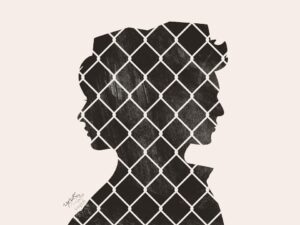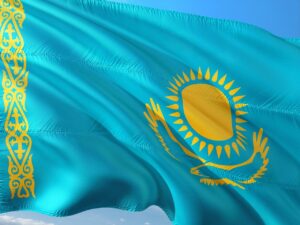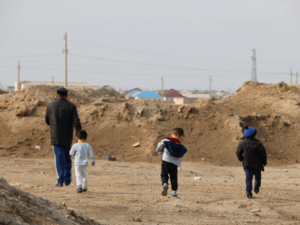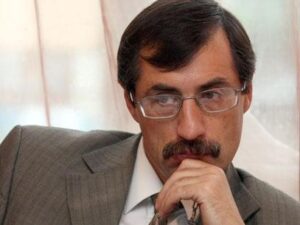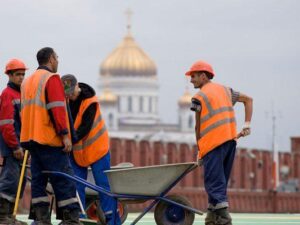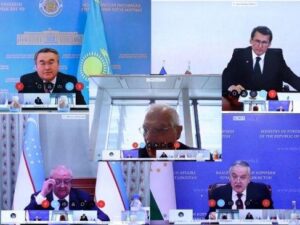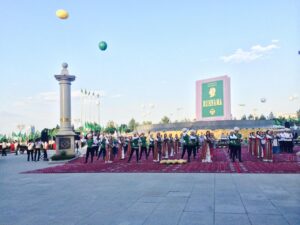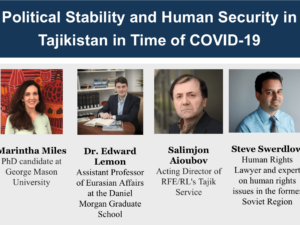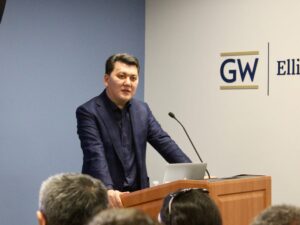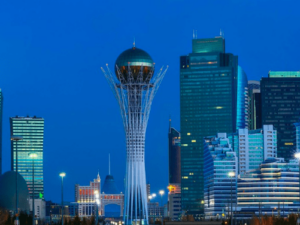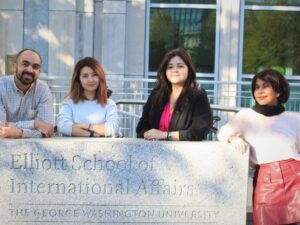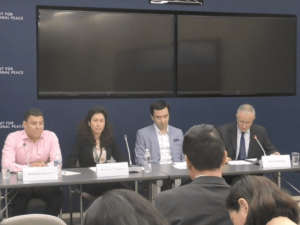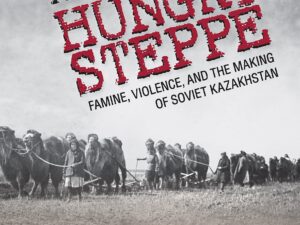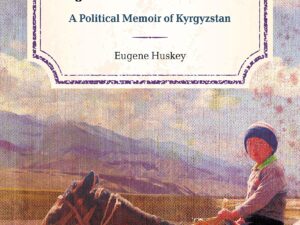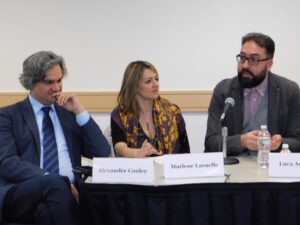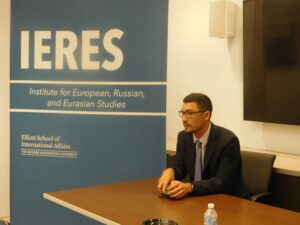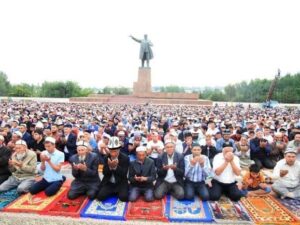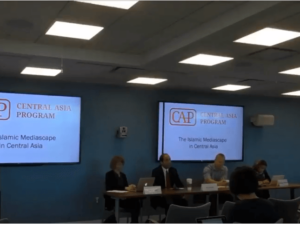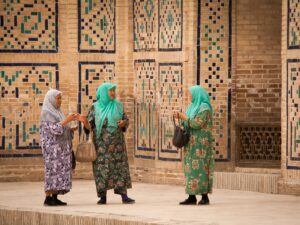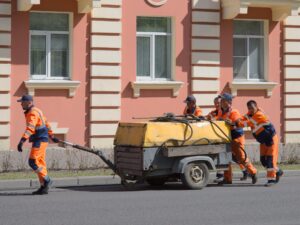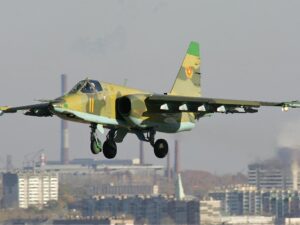Atomic Steppe: How Kazakhstan Gave Up the Bomb
The Central Asia Program invites you to a Nuclear Policy Talk presented by the Institute for International Science and Technology Policy Atomic Steppe: How Kazakhstan Gave Up the Bomb Featuring…
What Next In China’s Growing Security Footprint In Tajikistan?
China is expanding its security footprint in Central Asia through strategic military bases located in the remote eastern corner of Tajikistan. A recent report by RFE/RL shed new light on…
Editors on Central Asia: New Handbooks for a Maturing Field
Four new handbooks on Central Asia appeared in rapid succession by late 2021 or are coming soon in 2022: In this panel hosted by GWU, Four of the editors sit…
The State of Civil Society in Central Asia: Kyrgyzstan
The George Washington University Central Asia Program invites you to the second seminar in our Civil Society in Central Asia series. These sessions are led by Central Asia civil society experts with…
What is Happening in Kazakhstan?
Join us for a special event co-sponsored with the Carnegie Endowment for International Peace, Davis Center for Russian and Eurasian Studies, the Oxus Society for Central Asian Affairs, and RFE/RL.…
Kazakhstan: What Next? Understanding the Protests and the Post-Protest Political Context
It's been over a week since the massive protests that took the lives of at least 225 people. How can we begin to understand the diversity of reasons for the public dissent…
Central Asia as a Pivot in China’s BRI
with the author Zenel Garcia The Central Asia Program invites you to an online event based on Zenel Garcia's recent book China's Western Frontier and Eurasia. With the Belt and Road Initiative (BRI),…
Modernity, Development and Decolonization of Knowledge in Central Asia: Kazakhstan as a Foreign Aid Donor
Join us for an online book launch with the author Nafissa Insebayeva, discussants Syinat Sultanalieva and Sofya du Boulay. This book joins the discussion on foreign aid triggered by the…
Kazakhstan after “Bloody January:” Dreams and Pains of Renewal
Join us for an online event co-sponsored with the Davis Center for Russian and Eurasian Studies and the Oxus Society for Central Asian Affairs Kazakhstan has been shaken by a…
Dynastic Succession in Turkmenistan: Will it Make Any Difference?
The Central Asia Program invites you to an online discussion about the implications of the March 12 snap presidential elections in Turkmenistan, which are expected to see power pass from President…
EU Efforts to Prevent Violent Extremism (PVE) by Engaging Civil Society in Kyrgyzstan: Evidence from the Ground
Although a number of previous studies have investigated violent extremism in Central Asia, rigorous research concerning the international efforts in preventing this phenomenon in the region is still limited. The…
What is the Current State of Religious Freedom in Uzbekistan?
Launch of Uzbek-language edition of the U.S. Commission on International Religious Freedom's Report on Religious Prisoners The Central Asia Program (CAP) invites you to a timely discussion with leading officials…
Risks and Opportunities for Central Asia in a New Geopolitical Context
How are Central Asian countries impacted by the war in Ukraine? What is the future of the Eurasian Economic Union? How can Central Asian countries avoid being the collateral victims…
Kazakhstan’s Political Reforms Amidst Geopolitical Shifts
For Kazakhstan, the year started with the unprecedented January riots, a stress test for the country and the government. President Tokayev announced significant political reforms and the decision to accelerate…
The Mobilizing Potential of Communication Networks in Central Asia
What is the mobilizing and meaning-making potential of information and communication technologies (ICT s) in non-democratic regimes? This question has been studied globally, with the Arab Spring heightening the urgency and…
“News from Central Asia” Exhibit
Elliott School of International Affairs, 6th floor 1957 E Street NW, Washington, DCNews from Central Asia brings together Central Asian artists, artisans, and designers whose inspirational works reflect political protests, environmental issues, collective memory restoration, the role of women, objects as reminders…
Film Screenings (News from Central Asia)
Elliott School of International Affairs, 6th floor 1957 E Street NW, Washington, DCRhythms Of Lost Time Trailer DIRECTOR: Anisa Sabiri, Tajikistan A journey through the most remote parts of Tajikistan -a young and little-known country which cradles the last embers of an…
Silk Road Festival
Elliott School of International Affairs, 6th floor 1957 E Street NW, Washington, DCJoin us on Sunday to enjoy Central Asian art, culture, and food at our Silk Road Festival and discover local vendors, artists, cooks, and performers. Full Program "News From Central…
Film Screening: There Is No Rain in Hell
*COVID-19 Protocols for Visitors: GW requires that all visitors aged 5 and older be up-to-date on their COVID-19 vaccines, (i.e. fully vaccinated and boosted, if eligible). To help streamline the verification process, GW…
Reform Crisis in Uzbekistan and the Karakalpak Protests
President Shavkat Mirziyoev initiated several constitutional amendments in Uzbekistan at the end of June which have reminded the world about the autonomous republic of Karakalpakstan, bordering the dying Aral Sea.…
Gender as Intersections: A Different Way of Seeing Central Asia
Gender-based violence, (geo)politics, and Islam continue to dominate the production of knowledge about Central Asia. While using a gender lens, this Special Issue offers a different perspective on the region.…
Dungan Folktales and Legends: The Folkloric Narrative Tradition of the Sino-Muslims in Central Asia
First migrating from northwest China to Russian Central Asia after the suppression of the Dungan Revolt (1862–1877) under the Manchu-led Qing dynasty, the Dungan people boast a rich oral tradition,…
Escaping the Taliban, One Year Later: Afghan Voices of Hope
Elliott School of International Affairs, 6th floor 1957 E Street NW, Washington, DCAfghan Voices of Hope is a project that seeks to strengthen Afghan diasporic civil society by building solidarity and connecting people through shared experience. As refugees of the 2021 exodus…
Book Launch “Uyat and the Culture of Shame in Central Asia”
This panel proposes an interdisciplinary look at the culture of shame in Central Asia and evaluates its role in the regulation of social and political interactions in the region. Contributors…







